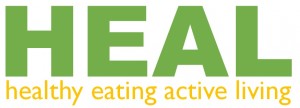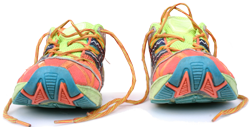 Chronic diseases are largely preventable, yet they remain the leading cause of premature morbidity and mortality in California, and the main source of increasing health costs in the United States. Chronic diseases are responsible for 7 in 10 deaths among Americans each year and account for nearly 75% of the nation’s health spending. Disparities exist by ethnicity including for heart disease, cancer, stroke and diabetes. Overall, African American men and women have the highest death rates in SF.
Chronic diseases are largely preventable, yet they remain the leading cause of premature morbidity and mortality in California, and the main source of increasing health costs in the United States. Chronic diseases are responsible for 7 in 10 deaths among Americans each year and account for nearly 75% of the nation’s health spending. Disparities exist by ethnicity including for heart disease, cancer, stroke and diabetes. Overall, African American men and women have the highest death rates in SF.
Although health is directly influenced by the environment, people often associate chronic diseases with personal choices such as eating too much or exercising too little. However, addressing the chronic disease epidemic is more complicated than simply telling people to exercise and eat fruits and vegetables. Social, physical and political environments shape our behavior; for those reasons, a multilayered approach across the spectrum of prevention (See here for more) is important. Together, these strategies (education, coalitions/mobilizing communities, systems changes, policy) create the settings that make the healthy choice the easy choice.
This funding opportunity has been developed by the San Francisco Department of Public Health in alignment with the Shape Up Coalition’s strategic plan and priorities. Read Shape Up SF’s strategic plan. The San Francisco Department of Public Health has staffed the Shape Up San Francisco Coalition since its inception in 2006.
The San Francisco Study Center, in partnership with Community Health Equity and Promotion Branch, San Francisco Department of Public Health, is now accepting applications with the intent to fund up to three (3) community-based organizations (CBOs) to do projects in alignment with the three priority areas listed below. A total of $30,000 is currently available, with a minimum of $10,000 awards and a maximum of $30,000. The funding priorities are:
- Increasing access to healthy foods
- Increasing opportunities for physical activity; and
- Decreasing consumption of sugary drinks/increasing consumption of tap water
Awards will fund an implementation period that will run from (approximately) August 15, 2017 through June 30, 2018. Awardees will negotiate a Memorandum of Understanding (MOU) and budget with project staff. The MOU will further specify deliverables and ensure that the project meets all San Francisco Study Center requirements. Funds will be distributed through the San Francisco Study Center, a fiscal agent selected by the San Francisco Department of Public Health.
Preference will be given to groups that reach underserved neighborhoods and special populations at risk, especially African American, Latino and Asian populations. Funding is restricted to non-profit community based organizations. Groups that are not established non-profits may apply with a 501(c)3 non-profit as fiscal sponsor.
Project requirements include: a designated project coordinator, and submissions of brief monthly progress updates, meetings as requested, email exchanges, and one final report to describe what has been accomplished during the project period. Funded agencies must keep and provide accurate records of all funded activities. Expenditures must be fully documented and comply with San Francisco Study Center requirements. Funds are distributed as reimbursement of expenses in carrying out the project.
Each grant is for a community-focused outreach, education, and organizing project by a community group or agency. The project must meet the following criteria:
- Project focuses on one of the three priority areas;
- Project will be based on evidence and/or best practices; and
- Project addresses populations experiencing the greatest health disparities.
Project examples include:
- Work with youth to design and create a mural in a community that is disproportionately burdened by chronic diseases like heart disease, type 2 diabetes or tooth decay. Mural topics must reflect one or more of the three priority areas.
- Pilot project for parents to support classroom teachers to teach PE first thing in the morning.
- Educate low income immigrant communities about the importance of drinking water and test the water safety in their home.
Important Dates and Times:
- June 2, 2017: Request for Proposals released.
- June 5 –June 19, 2016: Bidders email questions. Questions about the RFP will be answered and posted on this page.
- June 16 – EMAIL intent to apply so that we know how many applications to expect.
- July 6, 2017: RFP responses due no later than 12 noon, Attn: Marianne Szeto, 25 Van Ness Ave., Suite 500, San Francisco, CA. Please see pages 5-7 for the application and forms.
- Week of July 10, 2017 (Tentative): Technical Review Panel to score proposals.
- July 24, 2017 (Tentative): Award Notification letters sent out.
- Week of August 7, 2017 (Tentative): MOUs developed and signed.
- August 15, 2017 – June 30, 2018: Expected term for community projects.
Application Process
To apply for funding, complete the attached application and submit one (1) original and three (3) copies by 12 noon on July 6, 2017 to: Marianne Szeto, SF Department of Public Health, 25 Van Ness Avenue, Suite 500, San Francisco, CA 94102. Applications will be read and scored by a panel of three content experts. The project start date is tentatively set for August 15, 2017.
All applications will be evaluated using the criteria found here. Organizations receiving the highest scores will be funded. Funded organizations will then work with staff to create an MOU, detailed work plan, and final budget. Download the RFP.
Please email questions about the RFP to chep@sfdph.org.


